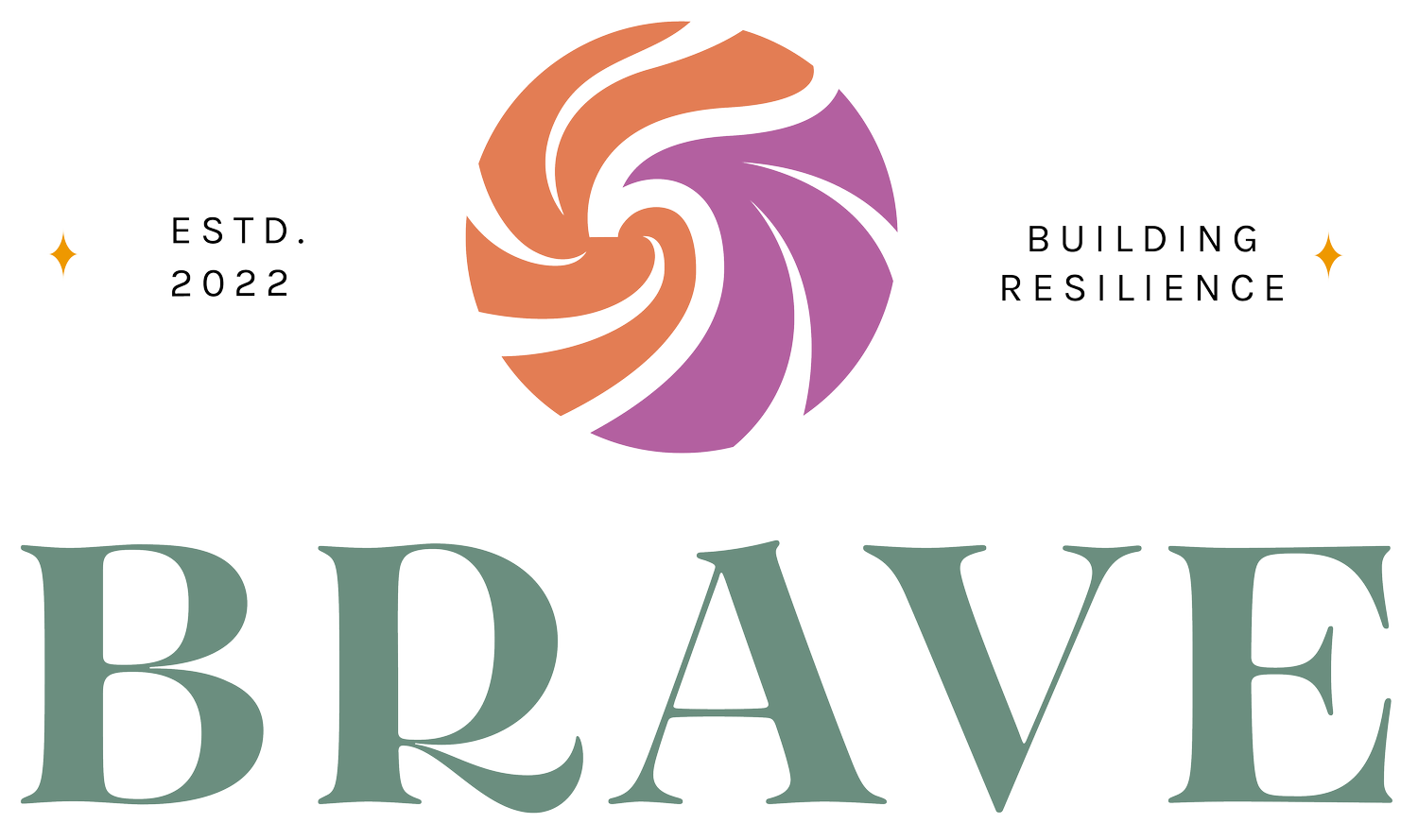The Stigma of Countertransference - Blog Takeover by Liliana Baylon, LMFT-S
Why Trauma Therapists Can’t Be Authentic
I get to interact with lots of different therapists every day through my role as the founder of The Brave Trauma Therapist Collective, as a supervisor, as a colleague, and as a friend.
One of the most common things I see across these interactions is a concern about being authentic, a concern about being oneself in their work with clients.
That’s because one of the first things we learn as budding therapists in grad school is that self-disclosure is BAD.
“Never EVER self-disclose” is the takeaway (and sometimes the exact words from professors and supervisors).
“Self-disclosure is unethical!”
“Self-disclosure is harmful to clients!”
When these narratives rattle through our brain from day one of our training, of course we don’t think we’re allowed to be ourselves, to be authentic, and show up in empathic connection with our clients!
Boundaries are Necessary, but Not Sufficient
I get why this is a common refrain when training soon-to-be therapists - just like when we’re learning a new treatment, we are taught the strict gold standard, given no wiggle room, because the experts know that eventually there will be drift.
These boundaries are of course necessary - we have to know the healthy and ethical limits of our profession.
And yet…these boundaries are not sufficient in supporting and protecting trauma therapists or their clients.
The thing is, when brand new therapists get out into the real world, they often feel completely unprepared for the reality of what it is like to do this work. They have no clue in which direction they can drift, so they often move right into freeze and fawn.
I hear from so many new trauma therapists who are having these normal reactions to very difficult work but thinking this means they’re not good enough, not cut out for this work, and that they’re a total failure.
This couldn’t be further from the truth!
What does this have to do with the stigma of countertransference?
I promise it’s all related.
You see, when we teach in grad school that we can never self-disclose, the message gets generalized into a belief that we can’t be our authentic selves in the therapeutic relationship.
It takes away the humanity of this incredibly intimate and human work that we do. And in this process, we very quickly learn that experiencing countertransference is “bad,” which means we must be bad.
You are not a bad therapist!
The members of The BRAVE Trauma Therapist Collective are quick to tell me that one of the most helpful things about being a part of our community is that they get to see how our members show up as their authentic selves in the therapy room.
And that through seeing lots of different models of what makes a truly wonderful trauma therapist, they are invited to be more of their authentic self and then feel less like an imposter.
This has helped them really heal and come back from so many of these damaging internalized beliefs about whether they were a good enough therapist or not if they were genuine and authentic in session.
BRAVE members share with me that seeing examples of highly trained, and incredibly ethical therapists showing up as humans, unmasking with their clients, has opened them up to even deeper work with their own clients.
It has helped them start to heal from the Stigma of Countertransference.
We All Need Strong Therapist Examples
This week’s blog post is a takeover by the amazing Liliana Baylon, LMFT-S and RPT-S based out of Lakewood, Colorado.
The Stigma of Counter-transference
with Liliana Baylon, LMFT-S, RPT-S
Liliana so courageously reached out and shared the following article with me that she wrote about the dangers of stigmatizing countertransference.
I say that she is courageous because she is shining a light on what so many of us believe and know in our guts about being a trauma therapist but seldom have the opportunity to share, and she did it unsolicited!
I’m so proud to share her thought-provoking article with you and can’t wait to hear your reactions to her invitation to rediscover your own humanity as a therapist, no matter what your specialty.
Without further ado….!
The Stigma of Countertransference
by Liliana Baylon, LMFT-S, RPT-S
A prevalent narrative emerges in a profession where the emphasis often lies in concealing our humanity, intuition, shared experiences, and personal needs due to concerns about countertransference and the protection of clients.
This narrative speaks of psychotherapists feeling compelled to hide parts of their humanity to align with the guidelines set forth by credentialing associations and licensing boards. It is disheartening to hear accounts of surprise and dismay when therapists, as well as their trainers and mentors, are dealing with medical diagnoses, disabilities or they pass away.
The refrain of "I didn't know" echoes through these stories, underlining a pervasive silence surrounding our humanity and the potential for open expression.
The ongoing battle for and against a paradigm shift
Amidst the challenges posed by the COVID-19 pandemic and the Social Justice movement, there is an increasing demand for a paradigm shift.
There is a call to acknowledge and discuss the human aspects of all first responders, including mental health therapists.
However, systems such as universities, licensing boards, credentialing associations, and organizations have yet to fully adapt to this shift, often citing a steadfast focus on the client's well-being, grounded in ethical considerations.
Mental health therapists grapple with the absence of a standardized template for disclosure — questions of what to share, how to share it, and the purpose behind sharing weigh heavily.
There is a valid concern about the potential impact of this disclosure on professional opportunities, relationships with colleagues, and the therapeutic alliance with clients.
This dilemma exposes a paradox: while we ask our clients to trust us with their most profound narratives, often encompassing negative cognitions, health challenges, and various forms of trauma (e.g., medical, generational, racial, spiritual, professional, or related to criminal experiences), there exists a reluctance to extend the same trust within our professional community.
So what next?
As our field undergoes transformations, propelled by advancements in neurobiology and a new generation of psychotherapists questioning established practices, it becomes imperative to pause and reflect.
We must ask ourselves:
What can we do differently to address burnout and stigma in our field?
How can we openly discuss our mental and physical health without fearing repercussions on professional opportunities?
Can we normalize our humanity and shared experiences, dismantling stigma, and professional projections?
Can we recognize the value and gifts inherent in these conversations?
These questions challenge us to envision a more compassionate and supportive landscape for mental health professionals and our clients.
To learn more about the work Liliana does with her own clients and supervisees, please go to https://www.lilianabaylon.com/.
Liliana and I would both love to know your thoughts on this subject, so please feel free to reach out and let us know how YOU are pushing back against age-old practices that no longer apply in today’s practice of psychotherapy.



